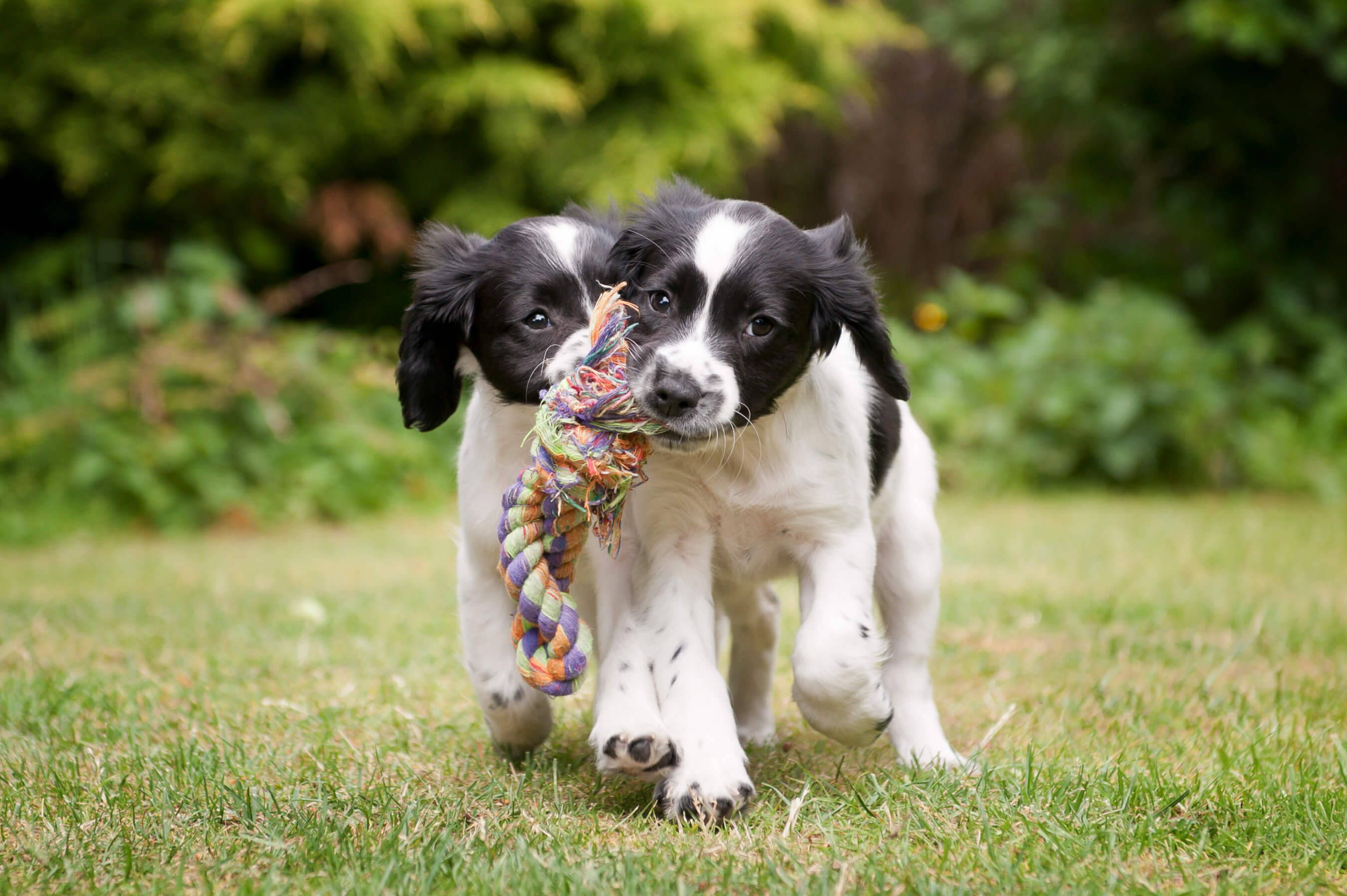
5 Frequently Asked Questions About Puppies
Puppy adoption is equal parts exciting and nerve-wracking. You want a new furry friend, but there’s still so much you don’t know. How do you train them? What medical procedures does a puppy need?
Find these answers and more by reading this list of pet parents’ most commonly searched puppy questions.
#1: How do I house train my puppy?
Until they’re fully house trained, confine your puppy to a gated area with hard floors like the kitchen or bathroom. Tile and wooden floors are much easier to clean in case your puppy has an accident. Lay down puppy pads and reward the puppy with treats when they eliminate in the right spot. You can also spray puppy pads with a special product that signals to your puppy where it’s appropriate to eliminate.
In addition to setting up puppy pads, bring your leashed puppy into the yard every 30 minutes. Frequent bathroom breaks give puppies a chance to eliminate outdoors before having an accident in the home. They probably won’t eliminate every time you bring them outside. When your puppy does eliminate, offer treats and lots of praise. Positive reinforcement will potty train a puppy, not punishment!
#2: What basic commands should they know?
You can start training your puppy right when they arrive home. First on the list should be “sit” and “stay” because these commands will help contain your pup’s boundless energy. Commanding them to sit will teach discipline and prevent unwanted behavior like snatching toys, jumping on guests or bolting out the door.
Puppies should also learn how to heel. This means that when you go for walks, the puppy doesn’t pull on the leash. Instead, they walk calmly right by your side. The heel command teaches pups not to chase squirrels, cars or other dogs. Not only does it show who’s in charge, teaching your puppy to heel also prevents them from picking fights with nearby pets or running into oncoming traffic.
#3: Which vaccines does my puppy need?
Your puppy’s first round of vaccines will occur at six weeks of age. During their first vet visit, your pup will receive vaccines for distemper and parvovirus. A month later, the puppy will get their first DHPP vaccine (distemper, hepatitis, parainfluenza and parvovirus). Puppies need several DHPP and rabies boosters until they become one year old. DHPP and rabies boosters are also required every one to three years.
The Bordetella vaccine is optional but highly recommended, as it will protect your pup from a common respiratory infection called kennel cough. Since the infection is so contagious, many boarding and daycare facilities require proof of vaccination for Bordetella. Pet parents are also encouraged to put their dogs on a year-round flea and tick treatment plan.

#4: When can my puppy go to the dog park?
A puppy needs to be fully vaccinated before they can visit a dog park. You can never know for sure whether the other dogs are up to date with their vaccines. Unvaccinated puppies run the risk of coming into contact with someone else’s infected pet. Diseases such as parvovirus, heartworms and rabies are extremely deadly for dogs, and that’s not a risk any pet parent should be willing to take.
Puppies are considered fully vaccinated by the age of 16 weeks. However, you may want to wait until they’re 17 weeks old before taking them to a dog park. Waiting an extra week gives the final round of shots more time to circulate into the immune system. Keep in mind that 16 weeks is more of a guideline than a hard-and-fast rule. Work with your vet to create a vaccine schedule that’s best for your puppy.
#5: When should I spay/neuter my puppy?
The spay/neuter procedure depends on various factors like your puppy’s gender, size and breed. Generally speaking, vets recommend altering your male dog shortly after they reach sexual maturity. For small breeds, male dogs should be neutered when they’re about six months old. Large breeds should wait until they’re done growing, which is usually between nine and 15 months.
Vets have competing arguments about whether female dogs should get spayed before or after their first heat cycle. Your vet will determine an appropriate date for your puppy’s spay procedure based on her breed and how fast she grows.
As a new pet parent, you’re bound to have many more questions. The information provided here is meant to serve as a good starting point for additional research. Remember, your vet is a valuable source of knowledge on puppy health as you navigate becoming a pet parent for the first time!


